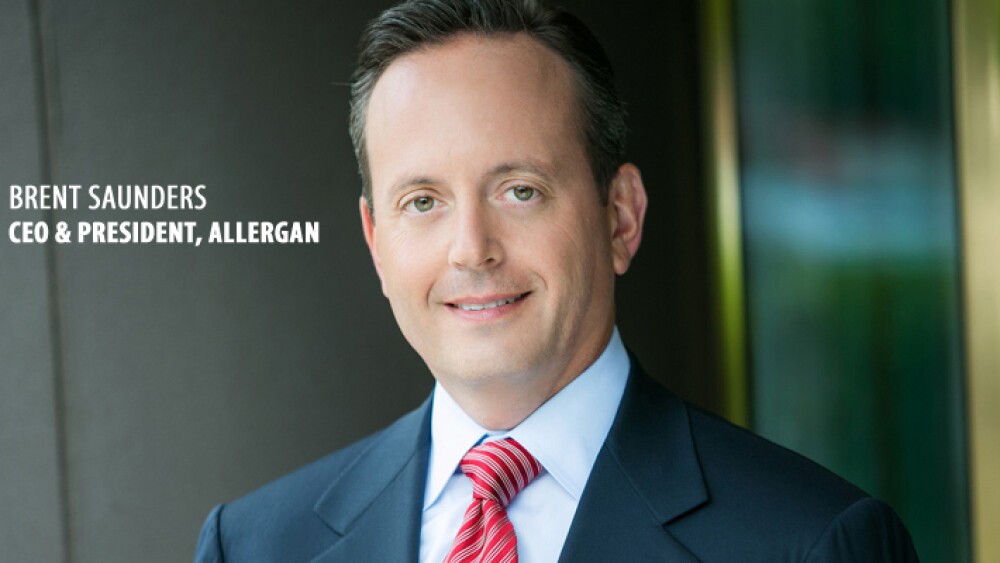September 20, 2016
By Mark Terry, BioSpace.com Breaking News Staff
What’s a company to do with $40+ billion in cash? Buy things. Dublin-based Allergan came out of the rubble of the failed Pfizer acquisition with a $150 million breakup fee and $40 billion from selling its generics business to Israel-based Teva . Today, in yet another buy in its string of acquisitions, Allergan announced it was acquiring San Francisco-based Tobira Therapeutics in a deal that could hit $1.695 billion.
Allergan inked a deal with Tobira for an upfront payment of $28.35 per share in cash, as well as up to $49.84 per share in Contingent Value Rights (CVRs) based on various development, regulatory and commercial milestones. It could add up to a total of $1.695 billion.
A big part of the appeal of Tobira is how far along the company is in drugs to treat non-alcoholic steatohepatitis (NASH) and other liver diseases. NASH, sometimes dubbed the “silent” liver disease, resembles alcoholic liver disease, but appears in people who drink little or no alcohol. However, it can be quite severe and lead to cirrhosis. According to the National Institute of Diabetes and Digestive and Kidney Diseases, NASH affects 2 to 5 percent of people in the U.S. There are currently no specific treatments aside from weight loss, increased physical activity, and avoiding alcohol and unnecessary medications.
Tobira has two complementary development programs, Cenicriviroc (CVC) and Evogliptin, for NASH. CVC is a Phase III ready immunomodulator that acts by blocking two chemokine receptors, CCR2 and CCR5, both of which are indicted in inflammation and fibrogenic pathways in NASH. Evogliptin is an oral DPP-4 (Dipeptidyl peptidase-4) inhibitor currently being studied in a Phase I trial.
“The acquisition of Tobira is a strategic R&D investment within a white space area of our global Gastroenterology franchise and an opportunity to advance the development of novel treatments for NASH,” said Brent Saunders, Allergan’s president and chief executive officer, in a statement. “With the increasing rates of diabetes, obesity and other metabolic conditions in the U.S. and in developed nations globally, NASH is set to become one of the next epidemic-level chronic diseases we face as a society. It is important that we invest in new treatments today so that healthcare systems, providers and patients have treatment options to face this challenge in the coming years.”
In April, only a day after Pfizer ’s attempted merger with Allergan was dashed by new U.S. Treasury Department rules regarding tax inversions, Allergan entered into a deal with Heptares Therapeutics, a wholly-owned subsidiary of Sosei Group Corporation. Allergan paid Heptares $125 million up front for exclusive global rights to its portfolio of novel subtype-selective muscarinic receptor agonists to treat various neurological disorders, including Alzheimer’s disease. Heptares may also receive up to $665 million tied to successful Phase I, II and III clinical trials and the launch of its first three licensed compounds. An additional $2.5 billion is linked to hitting specific annual sales milestones and double-digit tiered royalties on net sales.
On April 21, Allergan acquired Topokine Therapeutics for an upfront payment of $85 million and various milestones payments.
Four days later, it broke ground on a $200 million facility expansion in Waco, Texas.
On August 3, not long after it completed the generics sale to Teva, Allergan announced that it was also selling Teva its Anda distribution business for $500 million.
On August 8, Allergan bought Menlo Park, California-based ForSight VISIONS, a clinical-stage biotech company, for an upfront payment of $95 million and an undisclosed launch payment.
On September 14, Allergan acquired Fort Washington, Pennsylvania-based Vitae Pharmaceuticals for $21 per share in cash, a transaction value of about $639 million.





